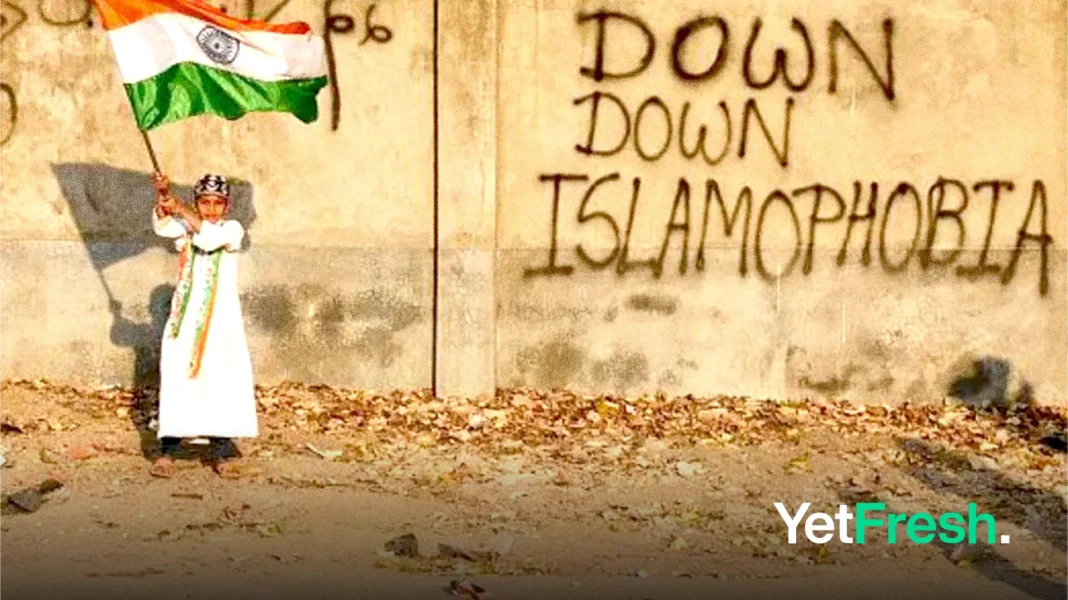Summary:
- A Muslim couple in Moradabad, Uttar Pradesh, was forced to sell their newly purchased house after Hindu neighbors protested, citing religious objections and proximity to a temple.
- The protests, led by residents of the upscale TDI City, included demands to annul the sale, with slogans and complaints filed against the seller, Dr. Ashok Bajaj, and the couple.
- Under pressure and mediation by local authorities, the Muslim couple agreed to resell the house to a Hindu family within the colony.
- The incident highlights ongoing housing discrimination against Muslims in India and has sparked national outrage over religious intolerance and constitutional violations.
A Muslim couple in Moradabad, Uttar Pradesh, was compelled to sell their newly purchased home after facing protests from Hindu residents of the upscale TDI City neighborhood. The incident, which unfolded earlier this week, has sparked widespread outrage and reignited debates about religious discrimination and housing segregation in India.
The controversy began on Tuesday when news broke that Dr. Ashok Bajaj, a Hindu doctor and long-time resident of TDI City, had sold his house to the Muslim couple, both of whom are doctors and family acquaintances for over 40 years. The sale provoked immediate backlash from the predominantly Hindu residents of the area. Protesters claimed they were not consulted about the transaction and raised objections based on religious grounds.
One resident, Megha Arora, was captured in a viral video stating, “We cannot tolerate a Muslim family living right in front of our local temple. This is also a question of the safety of our women.” She added that the sale should be annulled and vowed to continue protesting until the couple left. Other residents echoed similar sentiments, filing complaints with the district magistrate’s office and demanding that the house registration be revoked.
By Friday, under pressure from protests and mediation by local authorities, Dr. Bajaj confirmed that an agreement had been reached for the Muslim couple to resell the house to a Hindu family within the colony. He expressed disappointment over the uproar, calling it “uncalled for” and emphasizing that there was no legal restriction on such transactions. “The controversy is changing the fabric of the city. Our intention was not to create any kind of unrest with this transaction,” he said.
This incident is not an isolated case in Moradabad or other parts of India. In 2021, similar protests erupted in Moradabad when two Muslim families purchased homes in Hindu-majority areas. Across India, housing discrimination against Muslims is a well-documented issue, with many housing societies imposing restrictions—such as vegetarian-only policies—to exclude minority communities. Prominent figures like Bollywood actor Emraan Hashmi have also publicly shared experiences of being denied housing due to their Muslim identity.
Experts and activists have condemned the Moradabad incident as a blatant violation of constitutional rights. Tanvir Aeijaz, a professor at Delhi University, described it as “discriminatory and completely unconstitutional,” adding that it infringes on fundamental rights to equality and freedom. He noted that while special protections exist for other vulnerable groups like Dalits and women, Muslims remain disproportionately targeted without similar safeguards.
The broader context reflects growing concerns over religious polarization in India under Prime Minister Narendra Modi’s Bharatiya Janata Party (BJP) government. Reports from human rights organizations have highlighted increasing incidents of anti-Muslim discrimination and violence in BJP-ruled states like Uttar Pradesh. Critics argue that such incidents are symptomatic of deeper societal divisions exacerbated by political rhetoric and policies perceived as favoring Hindu nationalism.
The Moradabad case has drawn widespread condemnation on social media as well. Comedian Akash Banerjee remarked on X (formerly Twitter), “Welcome to #NewIndia. A doctor sold his house to a fellow doctor… Why on earth would that lead to a massive protest/uproar in a posh housing society in Moradabad?” Meanwhile, MP John Brittas from the Communist Party of India (Marxist) wrote, “As a nation we always boast about unity in diversity. We should be ashamed about these incidents.”
Despite these challenges, some remain hopeful for change. Professor Aeijaz expressed optimism that India’s pluralistic traditions could prevail over divisive ideologies: “Hinduism is based on pluralism. Most people I meet understand that hate is against their religion. And that gives me hope.”
The Moradabad incident underscores ongoing struggles with religious discrimination in India’s urban spaces, where ideals of inclusivity often clash with entrenched biases. As discussions around equality and constitutional rights continue, this case serves as a stark reminder of the work needed to bridge divides and uphold secular principles in one of the world’s most diverse nations.
Source: BBC




